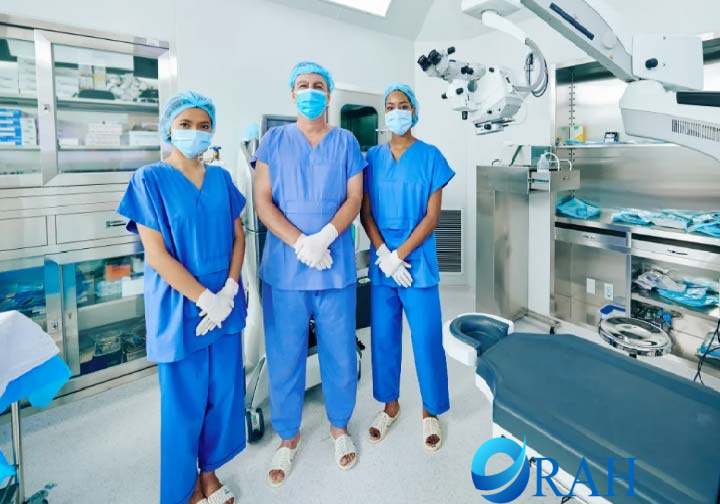If you’ve ever been fascinated by the world of surgery or thought about working in healthcare, a career as a surgical technologist might be just what you’re looking for. These skilled professionals are crucial members of the surgical team, ensuring that operations run smoothly, safely, and efficiently. But what does a surgical tech do? And what does it take to become one? In this article, we’ll dive deep into surgical tech jobs, covering everything from job responsibilities to the career outlook, education requirements, and more.
What Is a Surgical Tech?
A surgical technologist, also known as a surgical tech or operating room (OR) technician, is a healthcare professional who supports surgeons, nurses, and other medical staff during surgeries. Picture a surgical tech as a conductor behind the scenes, ensuring all the surgical instruments, supplies, and environments are ready for the main act: the surgery itself.
Job Duties and Responsibilities
Preparing the Operating Room
Surgical techs meticulously set up the operating room before a procedure. They arrange surgical tools, clean and sterilize equipment, and ensure all necessary supplies are on hand.
Assisting During Surgery
During surgery, they assist the surgeon by passing instruments, managing the sterile field, and monitoring equipment. Surgical techs need a high level of focus, as even the smallest distraction can disrupt the flow of the procedure.
Post-Operative Duties
After the procedure, surgical techs help clean up the operating room, sanitize equipment, and prepare it for the next surgery. Their attention to detail is key to maintaining a safe and efficient environment.
Skills Needed for Surgical Tech Jobs
Attention to Detail: Precision is crucial when dealing with surgical tools and a sterile environment.
Steady Hands and Manual Dexterity: A surgical tech handles sharp and sensitive instruments, requiring steady hands and skillful movements.
Ability to Stay Calm Under Pressure: In the OR, things can change rapidly. Surgical techs must stay composed to handle high-stress situations.
Educational Requirements
To pursue a career as a surgical tech, you typically need a diploma, certificate, or associate degree from an accredited surgical technology program. Most programs can be completed in 1-2 years, combining classroom instruction with hands-on training in surgical settings.
Certification and Licensing
Certified Surgical Technologist (CST)
Certification isn’t always required, but obtaining a Certified Surgical Technologist (CST) credential can enhance job prospects. This certification, awarded by the National Board of Surgical Technology and Surgical Assisting (NBSTSA), demonstrates a professional level of knowledge and skill.
Maintaining Certification
Once certified, surgical techs are often required to renew their certification every few years, ensuring they stay current with advancements in the field.

Work Environment and Schedules
Where They Work: Surgical techs typically work in hospitals, outpatient centers, and ambulatory surgical facilities.
Shifts and Hours: Since surgeries can be scheduled at any time, surgical techs may work a variety of shifts, including nights, weekends, and holidays. The unpredictable schedule can be challenging but rewarding for those who thrive in dynamic environments.
Career Growth and Job Outlook
The job outlook for surgical techs is promising, with the demand for these professionals expected to grow in the coming years. The U.S. Bureau of Labor Statistics projects steady growth, driven by an increase in surgical procedures and healthcare needs.
Salary Expectations
Surgical techs’ salaries vary based on location, experience, and facility. On average, surgical technologists earn a competitive wage. Those working in higher-demand regions or with specialized certifications may enjoy even higher salaries.
How to Get Hired as a Surgical Tech
Here are some steps that can help you stand out as an applicant:
- Gain Experience in Clinical Settings: Practical experience, even through internships, helps set you apart.
- Pursue Certification: Obtaining certification shows dedication and expertise.
- Craft a Strong Resume: Highlight relevant skills, education, and hands-on training experiences.
Conclusion
Surgical tech jobs offer a fulfilling career path for those passionate about healthcare, teamwork, and precision. From prepping for surgery to assisting surgeons during complex procedures, surgical technologists play a vital role in saving lives and enhancing patient care. If you’re detail-oriented, steady under pressure, and interested in a career that makes a difference every day, becoming a surgical tech could be the perfect fit.
FAQs on Surgical Tech Jobs
What is the typical work environment for a surgical tech?
Surgical techs mainly work in hospitals and surgical centers. They may face long hours in controlled, sterile environments.
Do surgical techs need a college degree?
While not always required, most surgical techs complete a certificate or associate degree program. Advanced certification can further boost job prospects.
How does certification benefit surgical techs?
Certification, such as the CST, demonstrates advanced skills and knowledge, increasing job opportunities and earning potential.
Is there room for career advancement?
Yes, surgical techs can advance by gaining experience, pursuing additional certifications, or moving into related roles, such as surgical assistant or specialized technologist.
What are the most rewarding aspects of surgical tech jobs?
Many find the ability to directly impact patient care and the excitement of working in surgery highly rewarding.